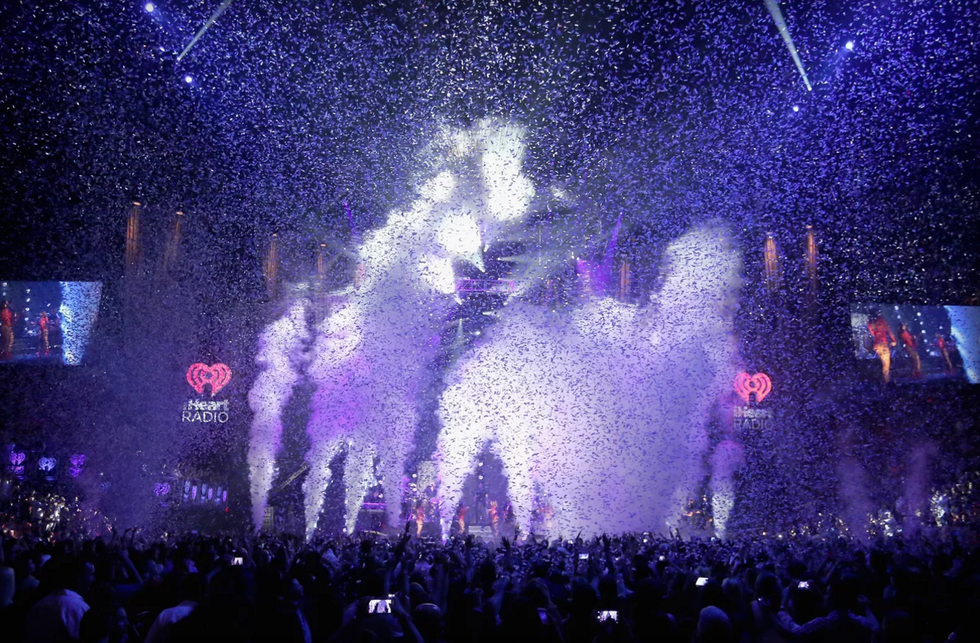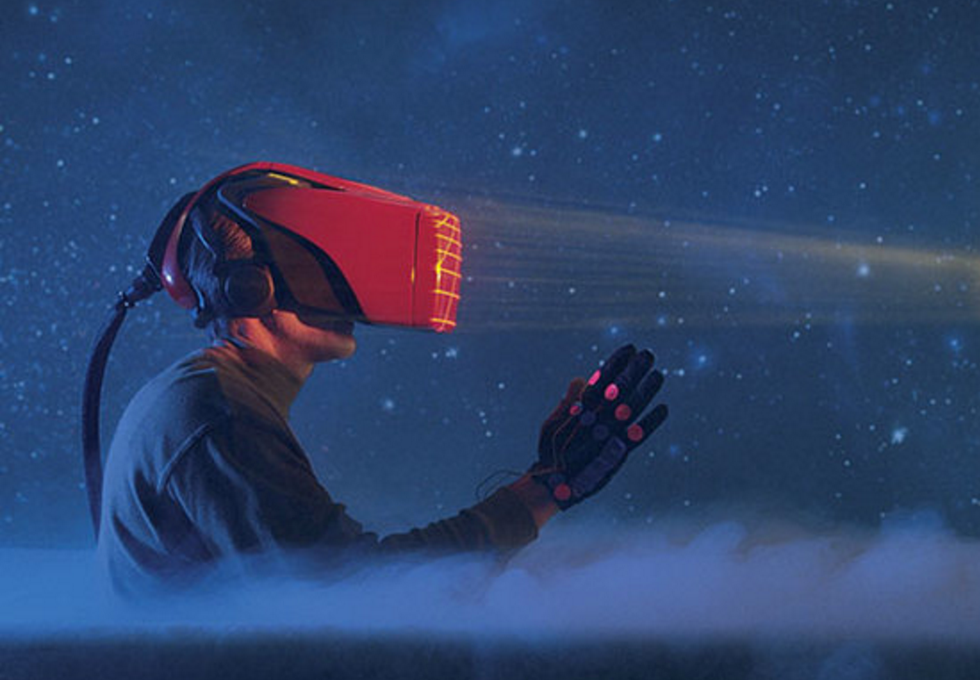It was Christmas Eve 1906, inventor Reginald A. Fessenden achieved the impossible by making the first audio radio broadcast for music entertainment. The broadcast included the song "O Holy Night" being played on the violin while Fessenden was reading Luke Chapter 2, from the Bible. Now, in the year 2016, we can go online and listen to any song we desire with the click of a button.
The amount of access we have to music has changed significantly over the past 110 years. Is there any way to evolve the listening experience? Through the use of virtual reality headsets, anyone can experience a live performance as if they were actually on stage from the comfort of their home. Fans all over the world will be able to be immersed in music like never before.
Creators all over the world are enhancing virtual reality with music like never before, allowing people to have emotional connections and authentic moments through the use of a virtual world. Virtual reality is the involvement of creating an environment that doesn’t exist and allowing users to interact within it. Developers have designed a program in which is challenging to differentiate between the physical world and the fantasy world. Companies including Universal Music group, iHeartMedia Radio, Oculus and Samsung are becoming heavily involved in creating images with applications to combine the content of real-world activities, such as going to a concert.
In 2015, hundreds of companies invested over $345 million into VR. Some of the investments went towards companies like Oculus, which have just released a consumer usable VR headset that is available for pre-order - the first shipment will go out March 28, 2016. The headset will be accompanied by an Xbox One, which allows the headset to connect with virtual content.
In March of 2014, Mark Zuckerberg announced that Facebook would be buying Oculus, a company fully focused on creating a virtual reality experience. Zuckerberg is very enthusiastic that these headsets will be the future after the smartphone. Oculus’s wants to enable the user to experience the impossible. You will be immersed in a musical experience that allows you to put on the headset and be at the concert. It's as if you teleport yourself to another world, no matter where you are.
Imagine you had uninterrupted moments of pure music listening to give you an immersive music experience. iHeartRadio and Universal Music Group have partnered to develop a fully virtual entertainment environment. The cutting edge technology will allow artists to connect with their fans through virtual reality concerts. Through the use of either iPhone or computer and a VR headset, the fans will be able to experience the concert from anywhere in the world and get the same experience as they would’ve had if they had attended the concert in real time.
Universal Music Group has claimed that they have plans to video record multiple shows in 2016 to enhance the new virtual reality experience. There are a few different ways that UMG and iHeartMedia plan to execute the integration between VR and live shows. Some of these events including the iHeartRadio Country Music Festival, iHeartRadio Music Jingle Ball Tour and the iHeartRadio Music Awards. Why spend over $300 on Jingle Ball tickets when you can just sit at home and have the same experience?
The iHeartRadio VR Concert Series will feature complete virtual concerts, including up close and personal shots of the artists and the live performance of the entire show. The other way they are going to incorporate the VR experience is through what will be called “The Experience,” which will feature a pre-show, post-show or a single set, but it won’t offer the entire concert.
The main goal for UMG and iHeartRadio is to make live music more accessible to fans who can’t afford to see artists like Taylor Swift or Adele, whose tickets can cost upwards of $500. Even with a VR platform costing just as much, it could pay itself off if you are a fan that goes to multiple concerts a year.
UMG has not released a list of artists being booked to take part in the virtual reality concerts. IHeartMedia has plans to launch it’s first ever VR concert series at the iHeartRadio Theater on April 3, 2016. This should get other artists on board with the idea.
Founded in 1934 as Decca Records USA, Universal Music Group is one of the primary music publishing operations. With labels like A&M Records and Capitol Records, they own the most extensive amount of music in the industry. iHeart Media is a digital radio platform with over 245 million regular monthly listeners. It reaches out to more listeners than any other radio platform in the nation. With these two powerful companies merging together, they say that they have enough leverage to convince listeners using the virtual reality platform.
UMG and iHeartMedia are not the only companies trying to capture the new technology. The California based startup, Wevr, announced this month that they raised over $25 million to launch what they are saying is going to be the YouTube of virtual reality. Wevr Transport is an online reality content network that allows consumers to view videos, and users to experience them through the one of the headsets. There will be both free and paid content available through the use of their Transport App. Just like YouTube, Transport allows you to browse through hundreds of videos and watch them instantly, the only difference is that you are getting the feeling of actually being in the video. The Wevr Transport app won’t only allow users to view videos in virtual reality, but also will enable users to publish content as well. Right now, the Transport App is private to users as it is in the test phase of the process.
This isn’t the first time that virtual reality and live concerts have come together. In 2014, the Coldplay Ghost Stories concert was recorded using this new technology. Through the use of the Samsung Gear VR gadget, you can feel like you’re on stage with the actual band. The goal for Coldplay was to give you an experience that was better than seeing the show live.
NextVR, a company that contributes to capturing and delivering live experiences, helped Coldplay fans to be directly in the action. This was the first virtual reality broadcast to hit the public. So far, theirs is the only product that has been released to the public, and they have plans for more events of this level of immersive experience. So far, they have seventeen patents pending and granted to capture virtual reality content.
It is predicted that over 200 million headsets will be sold by the year 2020. With huge companies like Facebook, Sony, Samsung and Microsoft investing billions of dollars to support the use of virtual reality headsets in music, it won't be too long before going to the concert virtually will be second nature. With these developments, virtual reality concerts and music could make a breakthrough in the entertainment industry.


























